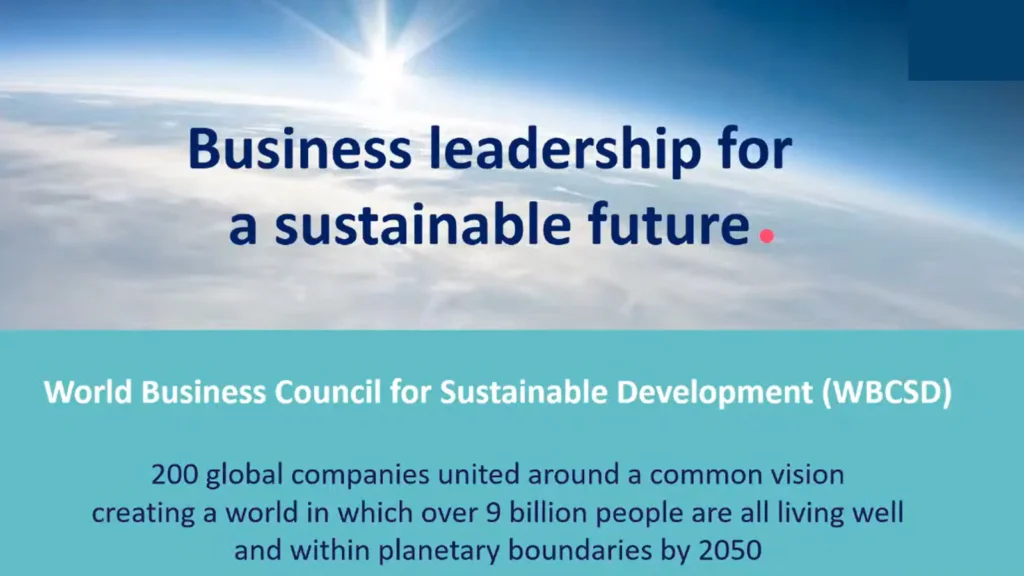Lisbon, 22 March 2021: BCSD Portugal has launched the Portuguese version of “Reinventing capitalism: a transformation agenda”, originally released by the World Business Council for Sustainable Development (WBCSD) as part of its work to update its Vision 2050.
The issue brief was launched during a Sustainability Dialogue on the topic of “What capitalism for the 21st century?”, organized by BCSD Portugal and featuring the following speakers:
- Clara Raposo, Dean of the School of Economics and Management at the University of Lisbon – ISEG
- Filipe Santos, Dean of Católica Lisbon School of Business & Economics
- Rui Tavares, Historian and former Member of the European Parliament
- Filippo Veglio, Managing Director & Senior Management Team, WBCSD
- Mafalda Evangelista, Head of Sustainability Knowledge of BCSD Portugal
For his part, commenting on the launch of the issue brief, João Wengorovius Meneses, the Secretary-General of BCSD Portugal, stated: “The companies of the future are those that have a much greater purpose than profit, those that do not aim to be the best in the world, but the best for the world. The transition to a sustainable or regenerative development model will not be easy, at the pace and scale required. The challenges are multiple. They always will be. But, strictly speaking, all we have to do is ensure that solutions win out over problems – and, to do that, we have the three greatest superpowers of humanity: intelligence, creativity, and empathy.”
BCSD Portugal is part of WBCSD’s Global Network, an alliance of more than 60 CEO-led business organizations worldwide.
Download the issue brief
- Portuguese – Reinventar o Capitalismo: o plano para o transformacão
- English – Reinventing capitalism: a transformation agenda
About the issue brief
The issue brief advocates that now is the time for companies and investors to enter – and lead – the debate, not just about why capitalism needs to change, but about how we go about transforming it. The publication synthesizes the best available thinking on why capitalism needs to be reinvented if it is to create the conditions for long-term business success, and the actions that business, investors and policymakers can take today to drive transformation.
WBCSD makes the case that the capitalism we need is one that rewards true value creation – not value extraction as today’s model does. Specifically, this means that all social and environmental costs and benefits should be internalized and reflected in the relative price of goods and services, and in companies’ profit & loss statements, costs of capital and market valuations.
A reinvented capitalism focused on true value would lead to a world in which more companies innovate in ways that contribute to a flourishing society, capital markets properly value and reward inclusive, sustainable business practices and, as a result, more capital is mobilized to deliver the SDGs and the transition to a 1.5°C world.
The issue brief argues that if we are to get to such a version of capitalism, we need to realign the incentives that drive businesses’ and investors’ behavior, adopting new and better ways of measuring performance, and tackle failures at the market and institutional level that favor financial value extraction over true value creation. A reinvented model of capitalism that address these failures will be characterized by five features: stakeholder-oriented, impact-internalizing, long-term, regenerative and accountable.
Reinventing capitalism along the lines suggested in this issue brief will, undoubtedly, be very challenging. It will require complementary action from businesses, investors and policymakers, with voluntary action from the private sector and changes to law and regulation going hand in hand. Business therefore has a critical role to play in shifting capitalism: “walking the talk” – adapting and aligning business models, decision-making processes, governance models, incentives, approaches to tax, remuneration, reporting and accounting with a vision of capitalism that pursues true value; and leveraging its relationships with other stakeholders – from suppliers and customers to policymakers and civil society – to influence the norms and rules that shape capitalism as a whole.
To that end, WBCSD worked with member companies and partners to identify a set of priority actions that business can take, linking these to corresponding policy and regulatory changes that companies can call for and need to support.
The issue brief, developed in partnership with Volans and EY, is part of a series of interim outputs linked to WBCSD’s refresh of its Vision 2050, a landmark 2010 report that laid out a pathway to a world in which nine billion people are able to live well, within planetary boundaries, by mid-century.
Contact points
- Mafalda Evangelista, Head of Sustainability Knowledge, BCSD Portugal
- Julian Hill-Landolt, Director, Vision 2050, WBCSD
WBCSD news articles and insights may be republished in accordance with the Creative Commons Attribution-NonCommercial-NoDerivatives 4.0 International Public License, and in accordance with our Privacy Policy. All Content must be featured with due credits.
Outline

